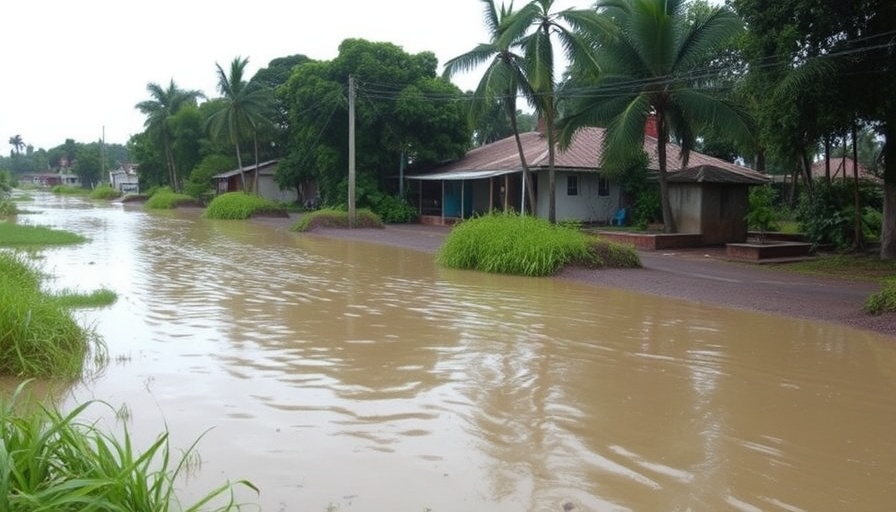
Climate Crisis Strikes Tanzania: The Economic Fallout
As torrential rains flood key regions across Tanzania, critical infrastructure and vast agricultural areas are under siege, affecting thousands of residents and farmers. Following warnings from the Tanzania Meteorological Authority, the floods have turned roads into rivers, endangering supply chains and vital transport routes to the commercial capital, Dar es Salaam. Reports indicate significant damage, particularly in the agriculturally vital Kilimanjaro and Morogoro regions, where more than 2,000 acres of farmland have been lost and thousands displaced.
Ripple Effects: Disrupted Supply Chains and Economic Implications
The new floods present immediate challenges not only for those affected but also for Tanzania's economy as a whole. The southern coastal region's significance is underscored by its contributions to essential sectors like cashew-nut, coal, and gas production, linking Tanzania to neighboring markets in Mozambique and Malawi. The ongoing infrastructural damage has led to transport disruptions, and the collapse of key bridges has drawn concerns about how this will impact trade flows and food security in the region.
A Glimpse at Future Preparedness and Resilience
As the government coordinates rescue operations, including constructing temporary roadways to facilitate emergency access, the situation begs the question: how can Tanzania enhance its resilience against future climate threats? With El Niño influencing weather patterns, leading to devastating floods last year, policymakers must actively pursue innovative solutions that build climate resilience. Engaging in strategic partnerships could bolster farming techniques and improve infrastructure, crucial for adapting to a landscape increasingly marked by extreme weather.
Lessons for Regional Policy and Governance
This natural disaster serves as a stark reminder for global policymakers to prioritize infrastructure investment for disaster preparedness. By addressing flood risks, Tanzania could fortify its agriculture and transportation sectors against unpredictable climate events. Tackling these challenges head-on not only protects local economies but enhances Tanzania's standing in the broader narrative of African cooperation against climate threats.
 Add Row
Add Row  Add
Add 


 Add Row
Add Row  Add
Add 

Write A Comment